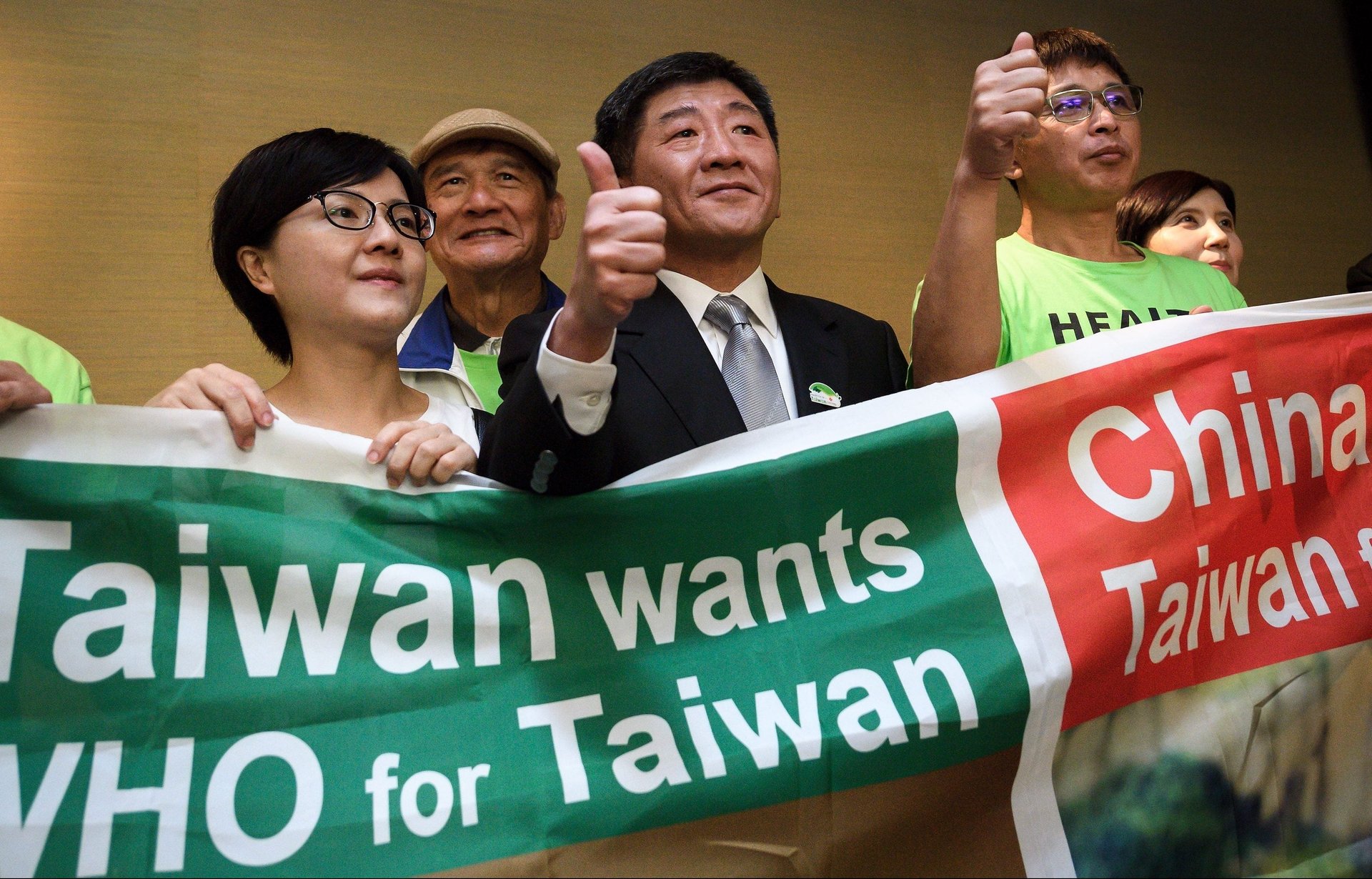The WHO can’t seem to figure out what to call Taiwan in its coronavirus updates
Taiwan is used to being called lots of different names. The World Health Organization (WHO) is giving it some new ones.


Taiwan is used to being called lots of different names. The World Health Organization (WHO) is giving it some new ones.
In its latest situation report (pdf) about the novel coronavirus, the United Nations agency listed Taiwan as “Taipei and its environs” in a tally of confirmed cases “reported by provinces, regions and cities in China.” Earlier, it had referred to Taiwan as “Taiwan, China,” then “Taipei.” The WHO’s labeling drew a sharp rebuke from Taiwan’s foreign ministry, which is asking for its name to be listed as “Taiwan” and for data about it to be included separate from China. The WHO also earlier misstated the number of cases in Taiwan.
The row is part of an escalation of calls from Taiwan and other governments for Taiwan’s inclusion in the WHO amid the coronavirus outbreak. Taiwan, is classified as a part of China by the UN, and China claims Taiwan as part of its own territory though the Communist Party has never ruled over Taiwan. Taiwan was allowed to take part as an observer at the WHO under the name Chinese Taipei, until China ratcheted up resistance against Taiwan’s participation following the election of president Tsai Ing-wen in 2016 as Beijing despises her views on Taiwan’s independence.
Taiwan competes under the name Chinese Taipei in international sporting competitions. Meanwhile, it’s also known as the Republic of China—while China is formally the People’s Republic of China.
There are real consequences to Taiwan’s exclusion from the UN body. For example, the WHO cannot share information with Taiwan, which has a population of 23 million, and has to rely instead on information about the virus from friendly countries such as Japan and the US, said its foreign ministry. During the SARS outbreak in 2003, Taiwanese scientists said they weren’t given access to crucial materials and information and were told by WHO instead to talk to China.
Taiwan was also included in flight bans against Chinese nationals because of its de facto inclusion as part of China by international organizations. Italy included flights from Taiwan in its travel restrictions imposed last week, though Vietnam reversed its earlier ban on Taiwan flights. Taiwan accused China of playing politics in the evacuation of Taiwanese citizens back home from Wuhan, the epicenter of the diseases with authorities stalling Taiwan’s repeated requests for almost two weeks before the first group was allowed to leave.
Taiwan has recorded 13 cases of coronavirus.
The WHO and China have both said that Taiwan is getting the help and information that it needs, without elaborating. China’s body that handles Taiwan affairs, however, has labeled Taiwan’s lobbying attempts as separatism. Taiwan has called China’s restriction of its access to the WHO “vile.”
Taiwan has traditionally relied on a small number of diplomatic allies, almost all of them tiny countries in Central America and the Pacific, to lobby for its inclusion in international bodies. It’s also launched campaigns using the slogan “Taiwan can help” around the world to promote its inclusion in institutions such as the WHO and the UN’s climate change framework.
Recently, however, the chorus of support has broadened to include Japanese prime minister Shinzo Abe, Canada’s Justin Trudeau, as well as the European Union, who have all expressed support for Taiwan’s participation in the WHO. Meanwhile a bill calling for the US to support Taiwan’s observer status at the body passed unanimously in the US House last month and needs to be passed in the Senate to become law.